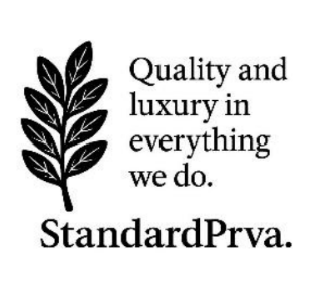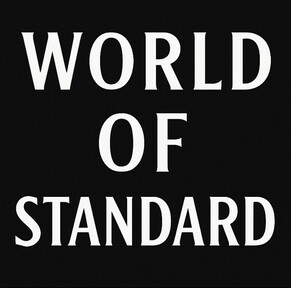StandardPrva: View on EU-BiH economic relations in focus during Ursula von der Leyen’s visit in October 2025
17.10.2025The European Union and Bosnia and Herzegovina have developed strong economic ties over the past decades. Today, the EU is by far the largest trading partner of BiH – around 73% of BiH exports are placed on the EU market, while over 59% of imported products come from EU countries. Such trade in 2023 made up approximately two-thirds of BiH’s total foreign trade. At the same time, the economy of Bosnia and Herzegovina significantly depends on European investments: only in 2022, direct investments from the EU reached 754 million euros, and since 1999, European development banks (such as the EIB) have provided about 3.2 billion euros in favorable loans for infrastructure projects in BiH. The EU, through its funds, continuously supports the development of BiH – in total, since the end of the war until today, BiH has received almost 2 billion euros of non-refundable aid from European funds. Only in the last two years (2022–2023), 256 million euros of aid were allocated for socio-economic recovery and development projects, making the EU the largest individual donor and financial partner of Bosnia and Herzegovina.
Pre-accession funds and development support
BiH’s status as a candidate country for EU membership has brought access to significant pre-accession funds. Through the Instrument for Pre-Accession Assistance (IPA) program, the EU allocated more than 309 million euros in non-refundable funds to BiH from 2021 to 2024. This aid also included an emergency energy package of 70 million euros to protect vulnerable households and small businesses from rising energy prices. In addition, funds were set aside for employment and social inclusion (EU4People program, 23 million €), and for strengthening the rule of law and equality (EU4Rule of Law program, 13 million €). EU funds are also used for infrastructure investments through the Economic and Investment Plan for the Western Balkans. Thanks to the combination of EU grants and credit lines from European banks, around 2.9 billion euros of investments have been mobilized in BiH since 2020 for sustainable transport, energy, environment, digitalization, and other areas. Examples include the construction of new highway sections on Corridor Vc, which will connect BiH more quickly with neighboring countries, the modernization of energy facilities (e.g. hydropower plants), and environmental projects such as regional landfills. This development support aims to improve the competitiveness of BiH and speed up the alignment with European standards – from transport connectivity to green and digital transition. It is also important to highlight investments in human capital – through programs like Erasmus+, over 11,500 exchanges of students, researchers, and youth between BiH and the EU have been funded so far, contributing to education and connecting younger generations.
Messages from Ursula von der Leyen: one billion euros for BiH and conditional reforms
The visit of the President of the European Commission Ursula von der Leyen to Bosnia and Herzegovina in October 2025 highlighted precisely the economic aspect of European-Bosnian relations. Von der Leyen praised the progress BiH has made on its European path, stating that the country has “come a long way” and is “standing at the doorstep of the European Union.” She reminded that a year and a half ago, the European Council granted BiH candidate status and in principle approved the opening of accession negotiations – a historic step that now needs to be turned into concrete actions. The key topic of the talks was the European Growth Plan for the Western Balkans 2024–2027, worth 6 billion euros, from which Bosnia and Herzegovina could receive almost 1 billion euros for development projects. Von der Leyen clearly stated that these funds will not be automatically available: BiH must complete and ratify the necessary agreements and reforms for the first tranche of money to be approved. She praised domestic institutions for the recent adoption of a joint Reform Agenda – a comprehensive reform plan – stating that this is the result of “hard work of all institutions” and that this same spirit of unity should continue in implementing the Growth Plan.
She announced that the European Commission will promptly assess the submitted Reform Agenda of BiH but also expects urgent action from BiH authorities. “The priority is holding the first intergovernmental conference” (opening accession negotiations), said von der Leyen in Sarajevo, which requires the adoption of judicial reforms and the appointment of a chief negotiator for negotiations with the EU. She especially emphasized that the appointment of a chief negotiator can no longer be delayed – this person should have the trust of all political actors and lead the negotiations in a focused and united manner. A clear message from the President of the EC was that the rule of law and judicial reform remain key conditions for progress: BiH is expected to adopt key laws in the area of justice (such as the law on courts and the High Judicial and Prosecutorial Council) in order to strengthen the fight against corruption and ensure citizens’ trust in institutions. Also, von der Leyen emphasized that the European Union remains “a friend to all communities in BiH” and that the future of all peoples in BiH lies within the European family. Interestingly, she also referred to public opinion: according to the latest polls, as many as 72% of BiH citizens trust the EU, which is the highest level of trust compared to any other international partner. This public attitude, along with the fact that two-thirds of young people in Europe support EU enlargement, she called “the most powerful message” that new generations want to live in a united Europe – and it is up to the leaders to make that possible.
Challenges for BiH’s economy and European support
Bosnia and Herzegovina is facing a number of economic challenges in the process of EU integration, and the messages of Ursula von der Leyen also touched on these issues. Energy transition is one of the priorities: BiH still largely depends on fossil fuels (coal) in electricity production, while the EU insists on the green agenda and investments in renewable energy sources. Through the Economic and Investment Plan, the EU finances projects such as the reconstruction of hydropower plants and improvement of energy efficiency, which will help BiH gradually reduce emissions and ensure a sustainable energy source. The fight against corruption and strengthening the rule of law are recognized as prerequisites for a healthy economy – corruption repels investors and hinders development. That’s why the EU places special emphasis in negotiations on the chapters on judiciary and fundamental rights, and already provides support through programs to strengthen judicial independence and institutional transparency (e.g. training projects for judges, assistance in establishing digital registries, etc.). Von der Leyen stated clearly in Sarajevo that without laws ensuring the independence of the judiciary, BiH will not be able to open negotiations. Digitalization is another area where BiH is lagging behind – from e-government to digital infrastructure – which affects competitiveness. The EU seeks to help in this area too: regional initiatives led by the EU aim to reduce roaming costs between the Western Balkans and the EU, expand broadband networks, and harmonize digital regulations in order to accelerate digital transformation and BiH’s integration into Europe’s single digital market. Also, the Union supports the modernization of education and improvement of workforce skills – from investing in vocational education to scholarships for students – because quality education and retaining young professionals in the country are key for long-term economic growth.
Readiness of BiH authorities for European requirements
Bosnian authorities declaratively emphasize their commitment to fulfilling European conditions, although the pace of reforms is sometimes slowed by internal political turmoil. Chairwoman of the Council of Ministers Borjana Krišto assured the President of the EC that BiH continues to work on European reforms. According to her, 24 laws necessary for EU integration have already been sent into parliamentary procedure (17 of which are in the area of European integration). She particularly emphasized the adoption of the Reform Agenda with a list of measures, which has been forwarded to the European Commission and now a response from Brussels is awaited. However, Krišto admitted that some key laws – such as those on the High Judicial and Prosecutorial Council (HJPC) and the Court of BiH – did not receive the required majority and have not yet been adopted, and expressed regret over this delay. She pledged that the authorities will continue working on aligning these regulations in order to meet the set conditions. Also, the issue of appointing a chief negotiator for the accession negotiations has been raised – this issue is now, as stated, among the obligations on the European path, and in the upcoming period, the Council of Ministers will propose a candidate for that position. Despite political disagreements within the country, Krišto emphasized the joint stance of all relevant actors: “When it comes to the European path, there is no government and opposition. This is our common interest and commitment. Our place is in the EU,” said the Chairwoman of the Council of Ministers. Such statements suggest that there is political will to meet the requirements from Brussels, but readiness must be proven in practice – through concrete actions, adoption of laws, strengthening of institutions, and acceleration of projects.
The visit of Ursula von der Leyen was a strong incentive and reminder that BiH’s European perspective depends on fulfilling reform promises, but also that the EU stands by BiH ready to help financially and technically. In the economic sphere, this support is measured in hundreds of millions of euros of investments, trade benefits, and development projects that can ease BiH’s path toward membership. The coming months until the end of 2025 will show whether BiH will use this opportunity – to implement the agreed reforms and thus unlock the promised financial support of nearly one billion euros, which would open a new chapter of economic progress and bring the country closer to the European Union.
/ / /
"Standard Prva" LLC Bijeljina is a company registered in Bijeljina at the District Commercial Court in Bijeljina. Company’s activities are accountancy, repurchases of receivables, angel investing and other related services. Distressed debt is a part of the Group within which the company repurchases the receivables, which function and are not returned regularly.
Lawyer’s Office Stevanović is the leading lawyer’s office in the region with the seat in Bijeljina. The LO abbreviation represents Lawyer’s Office of Vesna Stevanović and Lawyer’s Office of Miloš Stevanović.
Contact for media press@advokati-stevanovic.com or via telephone 00 387 55 230 000 or 00387 55 22 4444.




